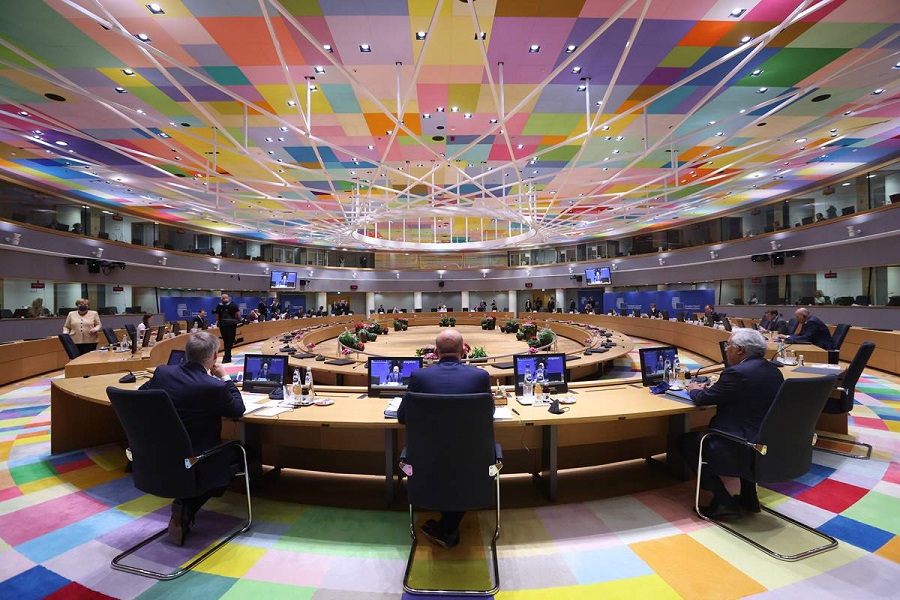EU Council Adopts Laws Aimed at Cutting Emissions from Transport, Vehicles, Energy Consumption


The European Council announced today the adoption of a series of laws and regulations aimed at achieving the EU’s climate goals, including rules to reduce energy consumption through 2030 across the EU, and legislation mandating the deployment of more recharging and refueling stations for alternative fuels across Europe, as well as reductions in emissions in the maritime transport sector, and.
The announcements mark the final major steps in several elements of the European Commission’s “Fit for 55” roadmap – the EU’s proposed strategy to cut greenhouse gas (GHG) emissions by 55% by 2030, compared to 1990 levels. Each of the new laws will be entered into the EU’s official journal, and subsequently come into force.
The energy efficiency directive aims to reduce final energy consumption at EU level by 11.7% in 2030, compared with 2030 forecasts made in 2020. Under the directive, member states will collectively ensure the achievement of the 2030 goal, with binding limits for final consumption, or the energy consumed by end users, while each will set an indicative target for primary energy consumption, which includes what is used for the production and supply of energy. The rules also include requirements for the public sector, excluding public transport and the armed forces, to achieve an annual energy consumption reduction of 1.9%.
The alternative fuel infrastructure regulation (AFIR), aimed at enabling the transition to zero emission transport, and addressing consumer refueling concerns that could impede the switch to zero emission vehicles, mandates a significant increase in electric vehicle recharging and hydrogen refueling stations across Europe’s main transport networks. The law sets requirements for publicly available charging infrastructure for cars and vans, and for the deployment of fast-charging stations every 60 km along the trans-European transport network (TEN-T) by 2025, as well as for recharging stations dedicated to heavy-duty vehicles every 60 km along the TEN-T core network, and every 100 km on the larger TEN-T comprehensive network from 2025 onwards, with complete network coverage to be achieved by 2030.
The new AFIR law also requires the deployment of hydrogen refueling infrastructure to serve cars and trucks every 200 km along the TEN-T core network by 2030.
Raquel Sánchez Jiménez, Spanish Minister of Transport, Mobility and Urban Agenda, said:
“The new law is a milestone of our ‘Fit for 55’ policy providing for more public recharging capacity on the streets in cities and along the motorways across Europe. We are optimistic that in the near future, citizens will be able to charge their electric cars as easily as they do today in traditional petrol stations.”
The maritime transport-focused law, Fuel EU Maritime, aims to increase demand for and use of renewable and low carbon fuels for waterborne transport, and drive reductions in greenhouse gas emissions for the sector, while balancing the need to ensure smooth operation of maritime traffic. The regulation includes requirements to gradually reduce the greenhouse gas intensity of fuels used by the shipping sector, starting with a 2% reduction in 2025, and reaching as much as 80% by 2050, and also introduces a requirement for zero-emission at berth, mandating the use of on-shore power supply or other zero-emission technologies in ports by passenger ships and containerships.
Sánchez Jiménez added:
“The new law will provide legal certainty for ship operators and fuel producers and help kick-start the large-scale production of sustainable maritime fuels, thus substantially delivering on our climate targets at European and global level.”